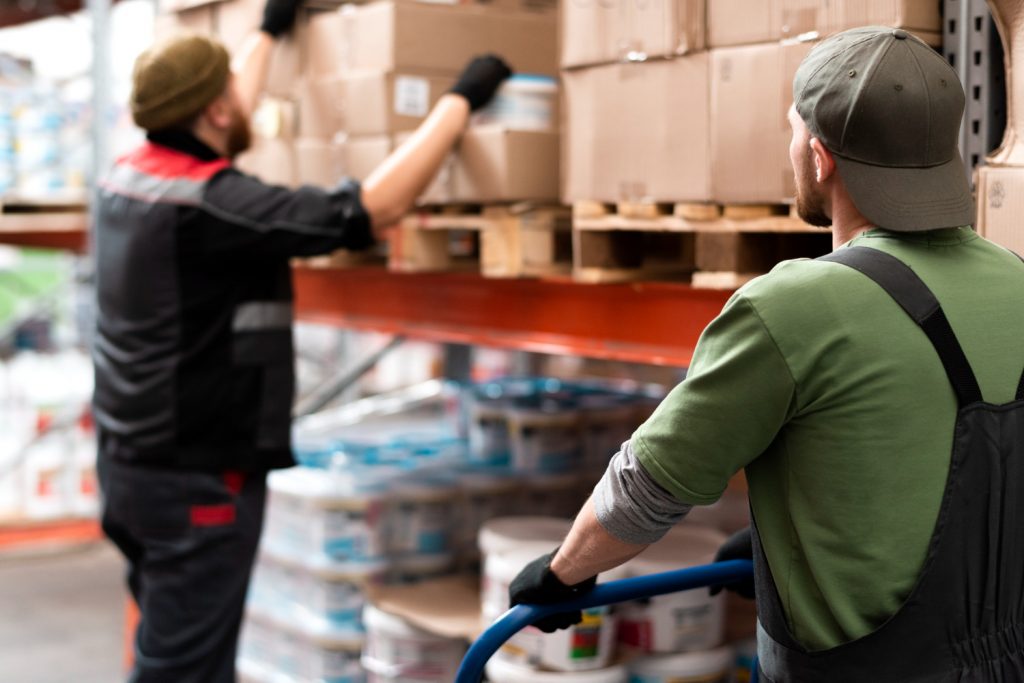
With appropriate guidance from a customs broker, the customs clearance process can be streamlined. Non-compliance with local laws and regulations can result in severe repercussions. These include prolonged delays, substantial fines, destruction of cargo, and the mandatory re-export of goods to their origin.
Staying abreast of Dubai's dynamic regulatory environment is paramount. Therefore, we advocate for the engagement of a reliable customs broker, preferably those located inside the port.
It is essential to acknowledge that free zone entities are generally barred from clearing food products into the mainland under their own name. These products must be pre-registered with regulatory bodies before being imported into Dubai, a process that spans several days to weeks. Furthermore, while some food items may be exempt from customs duties, others incur a 5% duty and a 5% VAT upon importation.
To facilitate a smooth customs clearance, partnering with a reputable customs broker is advisable. They are equipped to manage the intricate procedures, stay informed about regulatory updates, and guide through the complexities of importing meat into Dubai. For further details, please reach out to us at [email protected] or dial +971 55 791 0800.
Importing meat products into Dubai, United Arab Emirates (UAE) necessitates traversing a complex regulatory terrain. Prior to initiating your meat import endeavors, several pivotal steps must be undertaken to guarantee adherence to local statutes and regulations.
Initially, your entity must procure a "mainland license" with "food trading activity" delineated. This license is paramount, as free zone entities are typically barred from customs clearing food items into the mainland under their own designation. Acquiring the appropriate trade license serves as the cornerstone for your meat import venture in Dubai.
Post-acquisition of your trade license, the subsequent imperative is to register your enterprise with the requisite regulatory bodies within the UAE. This entails registration with the food regulatory and the Dubai Customs department. Cultivating robust relationships with these entities and maintaining precise documentation is crucial for a seamless import process.
Furthermore, securing individual product registrations from regulatory bodies may be obligatory, and is a time-consuming process. While fresh meat might be exempt from separate registration, processed meat items necessitate such registration.
By comprehending the detailed regulatory stipulations for meat imports in Dubai, you can traverse this process with assurance, ensuring your enterprise operates in strict compliance with local mandates. It is advisable to collaborate with a customs broker, who can offer invaluable expertise and support in expediting the approval process.
At Interlink Customs brokers, our expertise in guiding businesses through Dubai's meat import regulatory landscape is unparalleled. For further information on how we can facilitate the successful importation of meat products into the UAE, contact us at [email protected] or dial +971557910800.
Importing meat into Dubai necessitates a thorough understanding of the customs clearance process. Obtaining the requisite certificates and permits is paramount for a compliant and efficient importation. This ensures a smooth experience from start to finish.
Securing the necessary documents from the origin country's authorities is a prerequisite before shipping meat to Dubai. This includes a Health Certificate, Halal Slaughter Certificate.
The UAE enforces rigorous regulations on meat imports, encompassing specific criteria for composition, labeling, and storage. Our collaboration with clients ensures that all meat products adhere to Dubai Municipality and regulatory standards. This diligence includes verifying ingredient compliance, nutritional information, and expiration dates on labels.
Adherence to UAE labeling and packaging standards is imperative for meat import clearance in Dubai. We support our clients in meeting these requirements, which include product name, ingredients, production and expiry dates, manufacturer details, country of origin, and Arabic translations. Additionally, packaging must maintain the correct temperature and safeguard the meat's integrity during transport.
Temperature control throughout the supply chain is critical for meat imports in Dubai. We collaborate with clients to ensure that meat products are stored and transported at the correct temperatures, as mandated by UAE regulations. This measure is vital for maintaining the meat's quality and safety, facilitating a seamless customs clearance and delivery.
At Interlink Gulf, our expertise and resources are dedicated to assisting you through the complexities of meat imports into Dubai. Our team is equipped to guide you through the process of obtaining necessary certificates, navigating regulatory landscapes, and ensuring compliance with all relevant standards. For further information, please contact us at [email protected] or call +971557910800.
Before initiating the importation of meat products into Dubai, UAE, the entity must first acquire a "mainland license" with "food trading activity" explicitly noted. Free zone entities are generally barred from clearing customs for food products under their own name. Post-acquisition of the mainland trade license, the company must register with all pertinent regulatory bodies within the UAE.
Before exporting meat items to Dubai, the importing entity must confirm the acquisition of all requisite permits and certificates from the relevant government agencies in the origin country. Certain food items, including meat, may necessitate additional import permit compliance prior to the cargo's arrival in the UAE.
To adhere to UAE standards for meat imports, it is imperative to ensure that all meat products are correctly labeled according to UAE regulatory standards. This includes details such as product name, ingredients, nutritional information, production and expiration dates, and manufacturer information. Additionally, proper packaging and temperature control throughout the supply chain are critical to meet UAE standards for meat imports.
Non-compliance with these regulations can result in severe repercussions for the importing company. These include prolonged delays, substantial fines, cargo destruction, mandatory re-export, high storage fees, increased shipping demurrages, and legal repercussions. Entities involved in importing foodstuffs are advised to seek the expertise of a knowledgeable customs broker in Dubai to mitigate such risks.